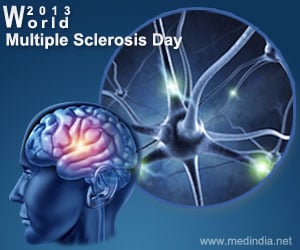Doctors say that better diagnostic facilities have led to detection of more cases of the multiple sclerosis, that affects two million people globally.

"The reason why MS cases have grown in India is because of better diagnosis through MRI scans. It existed earlier as well, but it was not diagnosed properly," said Mukherjee.
MS is an auto-immune disease in which the body attacks its own cells and tissues. The most common symptoms are numbness, weakness in the limbs, sudden loss of balance, blurred vision and muscle fatigue. There is no specific cure for the disease and current treatments use the disease modification approach to hinder recurrent attacks and disability.
Genetic and environmental factors are known to contribute to MS, but a specific cause for the disease cannot be identified.
There are two lakh MS patients in India, with most being in the 20 to 30 age group.
"The disorder is not as common in India as it is in Europe and other parts of the world. However, we still observe one to two new cases every year. Most of them are in the 20 to 30 age group. MS was thought to be a disease of the developed countries, and not a tropical disease, but now that has changed," said Mukherjee.
Advertisement
Peer support is of utmost importance in helping MS patients cope with its irreversible nature.
Advertisement
May 29 is World MS Day.
Source-IANS













